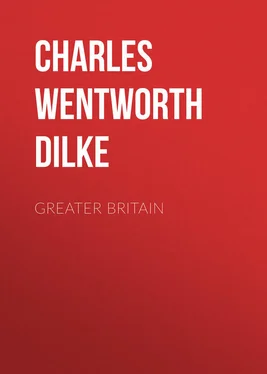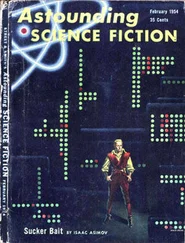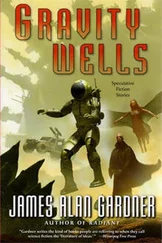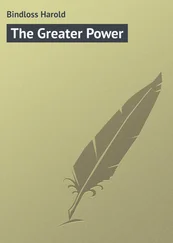Charles Dilke - Greater Britain
Здесь есть возможность читать онлайн «Charles Dilke - Greater Britain» — ознакомительный отрывок электронной книги совершенно бесплатно, а после прочтения отрывка купить полную версию. В некоторых случаях можно слушать аудио, скачать через торрент в формате fb2 и присутствует краткое содержание. Жанр: foreign_antique, foreign_prose, Путешествия и география, на английском языке. Описание произведения, (предисловие) а так же отзывы посетителей доступны на портале библиотеки ЛибКат.
- Название:Greater Britain
- Автор:
- Жанр:
- Год:неизвестен
- ISBN:нет данных
- Рейтинг книги:5 / 5. Голосов: 1
-
Избранное:Добавить в избранное
- Отзывы:
-
Ваша оценка:
- 100
- 1
- 2
- 3
- 4
- 5
Greater Britain: краткое содержание, описание и аннотация
Предлагаем к чтению аннотацию, описание, краткое содержание или предисловие (зависит от того, что написал сам автор книги «Greater Britain»). Если вы не нашли необходимую информацию о книге — напишите в комментариях, мы постараемся отыскать её.
Greater Britain — читать онлайн ознакомительный отрывок
Ниже представлен текст книги, разбитый по страницам. Система сохранения места последней прочитанной страницы, позволяет с удобством читать онлайн бесплатно книгу «Greater Britain», без необходимости каждый раз заново искать на чём Вы остановились. Поставьте закладку, и сможете в любой момент перейти на страницу, на которой закончили чтение.
Интервал:
Закладка:
D . – “But there‘s the wider difference, that negro suffrage down here is a necessity, unless you are to rule the country that‘s just beaten you.”
The Planter . – “Well, there of course we differ. We rebs say we fought to take our State out of the Union. The Yanks beat us; so our States must still be in the Union. If so, why shouldn‘t our representatives be unconditionally admitted?”
Nearer to a conclusion we of course did not come, he declaring that no man ought to vote who had not education enough to understand the Constitution, I, that this was good prima facie evidence against letting him vote, but that it might be rebutted by the proof of a higher necessity for his voting. As a planter said to me, “The Southerners prefer soldier rule to nigger rule;” but it is not a question of what they prefer, but of what course is necessary for the safety of the Union which they fought to destroy.
Nowhere in the Southern States did I find any expectation of a fresh rebellion. It is only Englishmen who ask whether “the South” will not fight “once more.” The South is dead and gone; there can never be a “South” again, but only so many Southern States. “The South” meant simply the slave country; and slavery being dead, it is dead. Slavery gave us but two classes besides the negroes – planters and “mean whites.” The great planters were but a few thousand in number; they are gone to Canada, England, Jamaica, California, Colorado, Texas. The “mean whites” – the true South – are impossible in the face of free labor: they must work or starve. If they work, they will no longer be “mean whites,” but essentially Northerners – that is, citizens of a democratic republic, and not oligarchists.
As the Southerners admit that there can be no further war, it would be better even for themselves that they should allow the sad record of their rising to fade away. Their speeches, their newspapers continue to make use of language which nothing could excuse, and which, in the face of the magnanimity of the conquerors, is disgraceful. In a Mobile paper I have seen a leader which describes with hideous minuteness Lincoln, Lane, John Brown, and Dostie playing whist in hell. A Texas cutting which I have is less blasphemous, but not less vile: “The English language no longer affords terms in which to curse a sniveling, weazen-faced piece of humanity generally denominated a Yankee. We see some about here sometimes, but they skulk around, like sheep-killing dogs, and associate mostly with niggers. They whine and prate, and talk about the judgment of God, as if God had anything to do with them.” The Southerners have not even the wit or grace to admit that the men who beat them were good soldiers; “blackguards and braggarts,” “cravens and thieves,” are common names for the men of the Union army. I have in my possession an Alabama paper in which General Sheridan, at that time the commander of the military division which included the State, is styled “a short-tailed slimy tadpole of the later spawn, the blathering disgrace of an honest father, an everlasting libel on his Irish blood, the synonym of infamy, and scorn of all brave men.” While I was in Virginia, one of the Richmond papers said: “This thing of ‘loyalty’ will not do for the Southern man.”
The very day that I landed in the South a dinner was given at Richmond by the “Grays,” a volunteer corps which had fought through the rebellion. After the roll of honor, or list of men killed in battle, had been read, there were given as toasts by rebel officers: “Jeff. Davis – the caged eagle; the bars confine his person, but his great spirit soars;” and “The conquered banner, may its resurrection at last be as bright and as glorious as theirs – the dead.”
It is in the face of such words as these that Mr. Johnson, the most unteachable of mortals, asks men who have sacrificed their sons to restore the Union to admit the ex-rebels to a considerable share in the government of the nation, even if they are not to monopolize it, as they did before the war. His conduct seems to need the Western editor‘s defense: “He must be kinder honest-like, he aire sich a tarnation foolish critter.”
It is clear, from the occurrence of such dinners, the publication of such paragraphs and leaders as those of which I have spoken, that there is no military tyranny existing in the South. The country is indeed administered by military commanders, but it is not ruled by troops. Before we can give ear to the stories that are afloat in Europe of the “government of major-generals,” we must believe that five millions of Englishmen, inhabiting a country as large as Europe, are crushed down by some ten thousand other men – about as many as are needed to keep order in the single town of Warsaw. The Southerners are allowed to rule themselves; the question now at issue is merely whether they shall also rule their former slaves, the negroes.
I hardly felt myself out of the reach of slavery and rebellion till, steaming up the Potomac from Aquia Creek by the gray dawn, I caught sight of a grand pile towering over a city from a magnificent situation on the brow of a long, rolling hill. Just at the moment, the sun, invisible as yet to us below, struck the marble dome and cupola, and threw the bright gilding into a golden blaze, till the Greek shape stood out upon the blue sky, glowing like a second sun. The city was Washington; the palace with the burnished cupola the Capitol; and within two hours I was present at the “hot-weather sitting” of the 39th Congress of the United States.
CHAPTER IV.
THE EMPIRE STATE
AT the far southeast of New York City, where the Hudson and East River meet to form the inner bay, is an ill-kept park that might be made the loveliest garden in the world. Nowhere do the features that have caused New York to take rank as the first port of America stand forth more clearly. The soft evening breeze tells of a climate as good as the world can show; the setting sun floods with light a harbor secure and vast, formed by the confluence of noble streams, and girt with quays at which huge ships jostle; the rows of 500-pounder Rodmans at “The Narrows” are tokens of the nation‘s strength and wealth; and the yachts, as well handled as our own, racing into port from an ocean regatta, give evidence that there are Saxons in the land. At the back is the city, teeming with life, humming with trade, muttering with the thunder of passage. Opposite, in Jersey City, people say: “Every New Yorker has come a good half-hour late into the world, and is trying all his life to make it up.” The bustle is immense.
All is so un-English, so foreign, that hearing men speaking what Czar Nicholas was used to call “the American tongue,” I wheel round, crying – “Dear me! if here are not some English folk!” astonished as though I had heard French in Australia or Italian in Timbuctoo.
The Englishman who, coming to America, expects to find cities that smell of home, soon learns that Baker Street itself, or Portland Place, would not look English in the dry air of a continent four thousand miles across. New York, however, is still less English than is Boston, Philadelphia, or Chicago – her people are as little Saxon as her streets. Once Southern, with the brand of slavery deeply printed in the foreheads of her foremost men, since the defeat of the rebellion New York has to the eye been cosmopolitan as any city of the Levant. All nationless towns are not alike: Alexandria has a Greek or an Italian tinge; San Francisco an English tone, with something of the heartiness of our Elizabethan times; New York has a deep Latin shade, and the democracy of the Empire State is of the French, not of the American or English type.
At the back, here, on the city side, are tall gaunt houses, painted red, like those of the quay at Dort or of the Boompjes at Rotterdam, the former dwellings of the “Knickerbockers” of New Amsterdam, the founders of New York, but now forgotten. There may be a few square yards of painting, red or blue, upon the houses in Broadway; there may be here and there a pagoda summer-house overhanging a canal; once in a year you may run across a worthy descendant of the old Netherlandish families; but in the main the Hollanders in America are as though they had never been; to find the memorials of lost Dutch empire, we must search Cape Colony or Ceylon. The New York un-English tone is not Batavian. Neither the sons of the men who once lived in these houses, nor the Germans whose names are now upon the doors, nor, for the matter of that, we English, who claim New York as the second of our towns, are the to-day‘s New Yorkers.
Читать дальшеИнтервал:
Закладка:
Похожие книги на «Greater Britain»
Представляем Вашему вниманию похожие книги на «Greater Britain» списком для выбора. Мы отобрали схожую по названию и смыслу литературу в надежде предоставить читателям больше вариантов отыскать новые, интересные, ещё непрочитанные произведения.
Обсуждение, отзывы о книге «Greater Britain» и просто собственные мнения читателей. Оставьте ваши комментарии, напишите, что Вы думаете о произведении, его смысле или главных героях. Укажите что конкретно понравилось, а что нет, и почему Вы так считаете.












